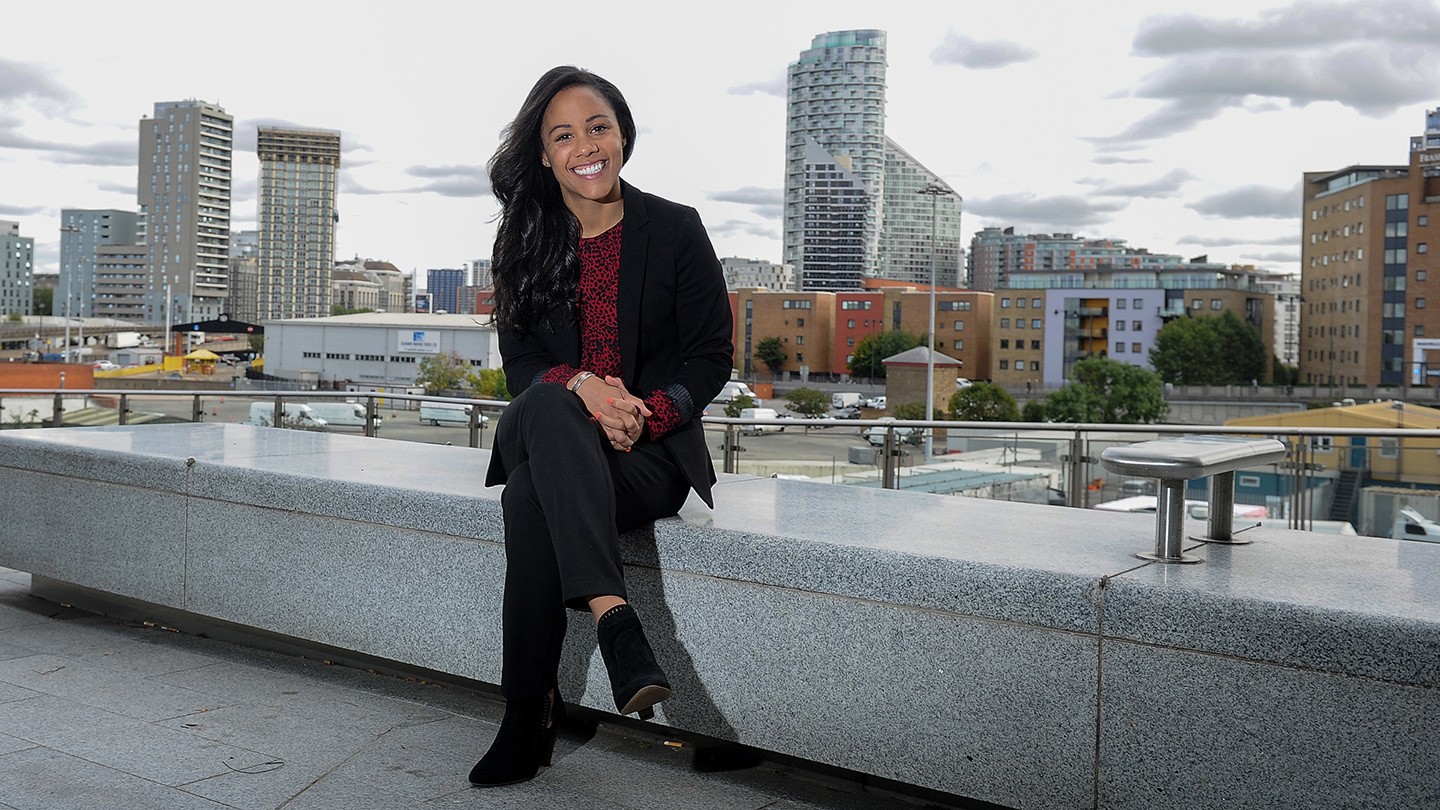
Leadership
Leading Questions: Alex Scott MBE
Alex Scott MBE has made 140 appearances for England and represented Team GB in the London Olympics in 2012. In our regular series on leadership, we talk to the former Arsenal defender, and now high-profile football broadcaster, about the importance of seeing women in leading roles, taking inspiration from Gareth Southgate – and why “no individual is bigger than the team”.
How would you describe your leadership style?
I’m very honest – there are no hidden agendas – and my teammates always saw that the team came first.
What’s the most important attribute for a good leader?
It’s the ability to listen. It’s not about you and your decisions – it’s about being able to listen to everyone. No individual is bigger than the team.
Does being appointed captain change your relationship with your teammates?
No, because I was still the same person. I still am that person, whether I put on an armband or not. The minute you think you’ve got more authority than anyone else, your teammates will not respect you and they’ll view you differently. Ultimately, having the trust of your team is what matters the most.
What’s the toughest thing about captaining a football team?
Dealing with everyone’s emotions. I wanted to make sure that everyone felt okay and sometimes it could be difficult. It’s not just when you’re on the football field that you’re a leader or a captain – it’s all the time.
Is being a captain a 24-hour job?
Being a captain is most definitely a 24-hour job – it’s the meetings with the manager, organising team events, listening when a player wants to talk to you in private, and holding those difficult meetings when things aren’t going right. It is non-stop, but I wouldn’t change it.
After a bad performance, what does a leader have to do to lift the team’s spirits?
When it hasn’t gone well on the pitch, everyone is looking to the leader and waiting for those first words to come out. Sometimes you have to put things in perspective very quickly and sometimes it’s about not reacting in that moment – it’s having the ability to go away, be calm, think about things and then analyse the situation.

When you’re a captain or a leader, what’s the best way to switch off?
When the season has finished, go away, switch off your phone and relax. Being a football captain can become all-consuming and you need to be able to have a rest so that when you come back you’re ready to go.
I think you’re always learning – not just as a captain, but as a person in general. You should always want to grow and learn every single day. I think that’s why travel has been so important in my life. To go and travel, experience other cultures, and meet different people – those life experiences help you grow in the environment that you’re in.
Are there any leaders in football that you look up to?
One leader I particularly admire at the moment is Gareth Southgate. He gives the players responsibility but also has the final say – and that’s leadership. How he carries himself is important as well because as a leader, you’re the person that the team looks to.
How does it feel seeing the women’s game going from strength to strength, through the FA Women’s Super League?
It’s great to have seen it grow from where it started to where it is now, with the fans coming out, the commercial value in it and the interest in the game. You can just walk down the street and people can tell you the results from the weekend. I get asked a lot whether I would want to come into the game now, and it would be easy for me to say yes – but I’m so proud of seeing where I started to where the game is now and being a big part of that change.
When it hasn’t gone well on the pitch, everyone is looking to the leader and waiting for those first words to come out. Sometimes you have to put things in perspective very quickly and sometimes it’s about not reacting in that moment
What more needs to be done to encourage women to take on high-profile roles in football?
I think visibility helps to encourage women to take on high-profile roles in whatever environment they work in. It’s important to see other females doing it, and to see those females using their voice as well. It’s about being brave, believing in yourself and going for those roles no matter what.
How did you make the transition from player to pundit?
I think people will see me on TV and assume the role was just handed to me, but I’ve had to work hard for it. A couple of years ago, I decided to do a degree in media to ensure I was ready to make the transition. I put in the hours, I did my research and now I am lucky enough to still be part of a sport that I love.
Can you tell me about the Game Changing campaign you’ve launched with Barclays?
The Game Changing campaign is about telling those stories that may not be told and showing the fans how important they are. Having that connection between players and fans is a big thing and I’m thrilled to be a part of that.
What’s the best piece of advice on leadership that you’ve been given?
Go with your gut and do what you think is right. You have to listen to others but ultimately, it’s your decision and you have to be true to that.